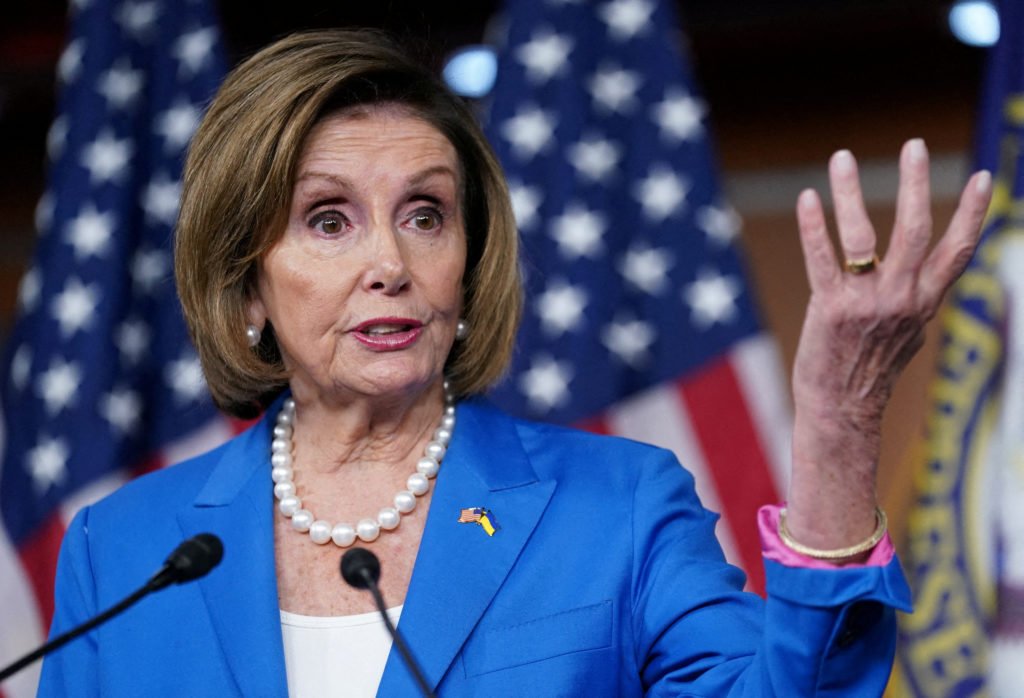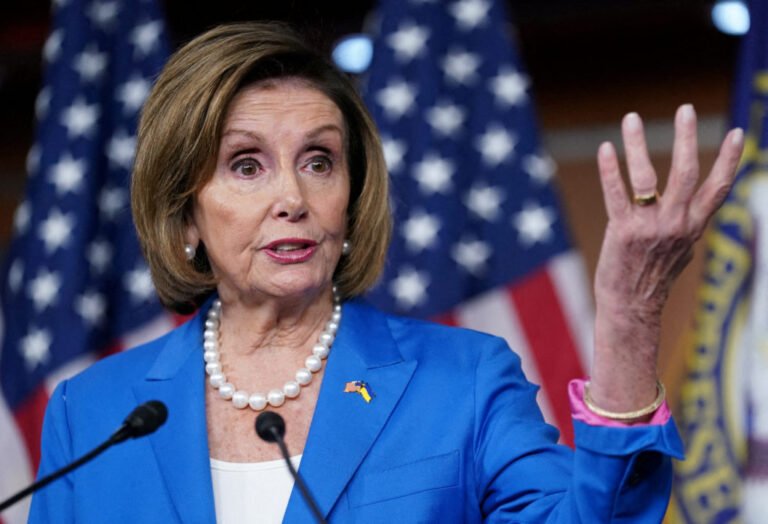
Nancy Pelosi: Trailblazer, Power Broker, and Political Icon
Nancy Pelosi is one of the most influential and polarizing figures in American political history. As the first woman to serve as Speaker of the U.S. House of Representatives, Pelosi broke significant barriers and redefined the role of women in American government. Over the course of her decades-long career, she has been a skilled legislator, a fierce partisan strategist, and a central figure in some of the most consequential political battles of the 21st century.
Early Life and Political Roots
Nancy Patricia D’Alesandro was born on March 26, 1940, in Baltimore, Maryland, into a politically active Italian-American family. Her father, Thomas D’Alesandro Jr., served as both a U.S. Congressman and later the Mayor of Baltimore. Her brother, Thomas D’Alesandro III, also became mayor of Baltimore in the 1960s. Politics was the family business, and Pelosi grew up surrounded by the inner workings of government.
After graduating from Trinity College in Washington, D.C., Pelosi moved to San Francisco, where she married Paul Pelosi and raised five children. Her political engagement continued at the grassroots level, where she became known as an effective fundraiser and party organizer in California’s Democratic circles.
Rise to Power in Congress
Pelosi’s official political career began in 1987 when she won a special election to represent California’s 5th District (later redistricted to the 12th). Even as a freshman, Pelosi quickly established herself as a staunch liberal and a strong advocate for issues such as HIV/AIDS research, women’s rights, education, and environmental protection.
In 2001, Pelosi was elected House Minority Whip, the No. 2 position among Democrats in the House, and just a year later, she became House Minority Leader—the first woman to hold that position. Her strategic mind, deep understanding of the party’s base, and tireless work ethic helped her gain the trust of her colleagues.
First Speakership (2007–2011)
Nancy Pelosi made history in 2007 when she was elected Speaker of the House, becoming the first woman to hold the position. Her leadership during this time was marked by ambitious legislative goals and cooperation with the incoming Obama administration.
Key accomplishments during her first speakership include:
- Minimum Wage Increase: As part of the Fair Minimum Wage Act of 2007.
- 2008 Financial Crisis Response: She played a critical role in passing the Emergency Economic Stabilization Act, which created the Troubled Asset Relief Program (TARP) to rescue the banking sector.
- Affordable Care Act (ACA): Pelosi was instrumental in shepherding President Obama’s landmark healthcare reform bill through the House in 2010, overcoming deep political resistance and internal party disagreements.
Her ability to keep the Democratic caucus united, especially during the complex negotiations over the ACA, solidified her reputation as one of the most effective Speakers in modern history.
Return to Power (2019–2023)
After Democrats lost the House in 2010, Pelosi stayed on as Minority Leader and led her party back to power in the 2018 midterm elections. Despite calls from younger Democrats for new leadership, she was re-elected Speaker in 2019, once again making history as the first person in over 60 years to reclaim the speakership after losing it.
Her second tenure as Speaker was marked by intense political polarization and several national crises:
- Impeachments of Donald Trump: Pelosi presided over two impeachment proceedings against President Trump — one in 2019 over the Ukraine scandal, and another in 2021 following the January 6 Capitol riot. She framed the impeachments as a defense of democracy and constitutional accountability.
- COVID-19 Response: Pelosi helped shape multiple economic relief packages, including the CARES Act, to provide aid to workers, small businesses, and healthcare systems.
- Infrastructure and Climate Legislation: Under her leadership, the House passed the Infrastructure Investment and Jobs Act and the Inflation Reduction Act, focusing on clean energy and economic equity.
Pelosi also became a symbol of resistance to Trump-era policies, often sparring with the former president in public and private. Her viral moments—like the iconic photo of her standing and pointing at Trump in the White House Situation Room—cemented her status as a cultural figure as well as a political one.
Leadership Style and Political Philosophy
Pelosi is known for her pragmatic progressivism, a blend of liberal values with strategic realism. Though she has supported progressive causes such as universal healthcare, LGBTQ+ rights, and climate action, she has often taken a centrist approach to governance, especially when counting votes.
Behind closed doors, Pelosi is a master negotiator and whip, famous for her ability to keep her caucus in line even when facing ideological splits. She is feared and respected for her discipline, her encyclopedic knowledge of legislation, and her unwavering commitment to Democratic priorities.
Criticism and Controversy
Despite her achievements, Nancy Pelosi has faced criticism from both the left and the right:
- From Conservatives: Pelosi is frequently targeted by Republicans, portrayed as the embodiment of liberal elitism and government overreach. She has often been featured in attack ads and vilified by right-wing media.
- From Progressives: Some on the left criticize her for being too cautious or compromising too easily on major issues like Medicare for All, student debt relief, and the Green New Deal.
- Wealth and Stock Trading Allegations: Pelosi and her husband have been scrutinized for their stock trading activity, especially during times of market turbulence. Although no laws were broken, critics argue that lawmakers should not be allowed to trade individual stocks while in office.
Legacy and Historic Impact
In November 2022, following the midterm elections and an attack on her husband, Paul Pelosi, Nancy Pelosi announced she would step down from Democratic leadership while continuing to serve as a member of Congress. Her decision marked the end of an era.
Pelosi’s legacy is profound:
- First Female Speaker: Her glass-ceiling-shattering role has inspired generations of women to pursue leadership in politics.
- Legislative Mastery: She’s widely regarded as one of the most effective Speakers in American history, passing major legislation even in divided times.
- Cultural Symbol: From her poised claps during State of the Union addresses to viral memes, Pelosi has become a fixture in American pop culture.
Conclusion:
Nancy Pelosi career is a testament to the enduring power of persistence, strategy, and conviction. Whether praised as a historic leader or criticized as a partisan lightning rod, her impact on American politics is undeniable.
She leaves behind a legacy not just of firsts, but of formidable leadership in a political era defined by turbulence, transformation, and change. As a woman who rose from a political family in Baltimore to the highest-ranking position in Congress, Pelosi has shown that power, when wielded with purpose and discipline, can shape the course of a nation.







